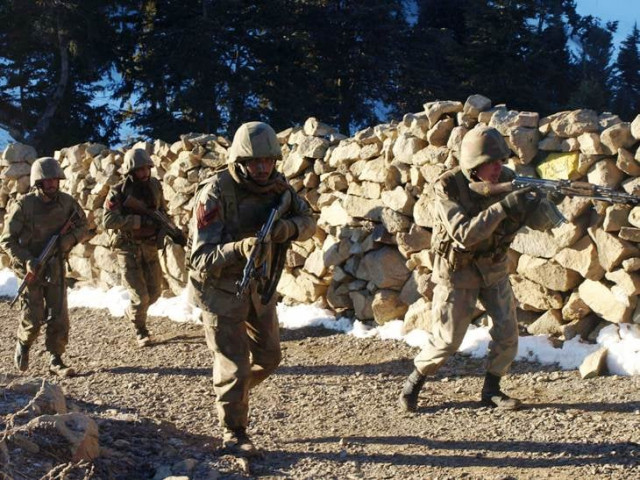Operation in North Waziristan
The operation, if it takes place, is going to mark a big turning point in the thinking of the Pakistan Army.

If the attack really happens, it will be after a major revision of the Pakistan Army’s stance on the elements located in North Waziristan. One main announced aspect of this stance was that the terrorists attacked there would make their way into regions already pacified by the Pakistan Army and reignite conflict there. Perhaps, for this reason, ‘sources’ reveal that ‘additional troops would be deployed after Eid in Bajaur and Mohmand Agencies’. Presently, a mix of regular troops and FC formations are deployed in these two agencies.
North Waziristan is where the most dangerous elements of the Tehreek-e-Taliban Pakistan (TTP) have mixed with the local and foreign outfits fighting against Pakistan, the international presence in Afghanistan, as well as engaging in global jihad against the West. All of them owe allegiance to al Qaeda — and to the Afghan Taliban — whose mid-tier leaders have been killed repeatedly by American drones. Because of the time taken by the Pakistan Army in deciding its inevitable final confrontation with these elements, they have become firmly entrenched, mostly on the strength of the money looted in Pakistan’s settled areas through bank robberies and kidnappings.
It is not going to be an easy operation because of the above-mentioned factors. There are dubious identities among the terrorists ensconced in North Waziristan. There are gangs that stage attacks inside Afghanistan but are considered ‘friendly’ to Pakistan, which obscures Pakistan’s own identity as an ally against terrorism. The Haqqani network is headquartered there, which enjoys an upper hand in half the provinces of Afghanistan. There are other elements like the Uzbek fighters with the blood of innocent people of Swat on their hands, along with the Punjabi Taliban.
The most powerful Taliban warlord in the agency is Hafiz Gul Bahadur of Datta Khel. He is linked to the Afghan Taliban and helps in attacks across the Durand Line. He is opposed to polio vaccination and his orders against vaccination campaigns are obeyed far outside North Waziristan. He is also an influential member of the larger militant local council, called Shura Ittehadul Mujahideen that includes Maulvi Nazir of Wana, the man who first disclosed the damaging facts of the Mumbai attacks to a Chinese English-language daily. Once the Shura also included Baitullah Mehsud and may now include his successor. There is also the Lashkar-e-Khorasan, its main job being to hunt down the tribesmen spying for the CIA’s drone campaign.
The operation, if it takes place, is going to mark a big turning point in the thinking of the Pakistan Army, which has, heretofore, pursued what is called the policy of ‘strategic depth’, mainly targeting India directly, but also targeting anyone who favours Indian presence in Afghanistan. The doctrine was based on a dubious category of ‘friendly terrorists’ in the TTP — which has now become threadbare after the TTP declaration that it is opposed to the Constitution of Pakistan and will seek to overthrow democracy and its fundamental conditions like general elections, condemning both political and religious parties who function under democracy.
While one can argue with the theory that the operation is complicated by the possibility of the terrorists fanning out from North Waziristan threatening adjacent regions where the Pakistan Army has hardly cleaned up the mischief-makers, one can’t help pointing out that it may already be too late for this theory to hold because of the ability of the Taliban to strike in all major cities of Pakistan.
Published in The Express Tribune, August 12th, 2012.







1724319076-0/Untitled-design-(5)1724319076-0-208x130.webp)






COMMENTS
Comments are moderated and generally will be posted if they are on-topic and not abusive.
For more information, please see our Comments FAQ